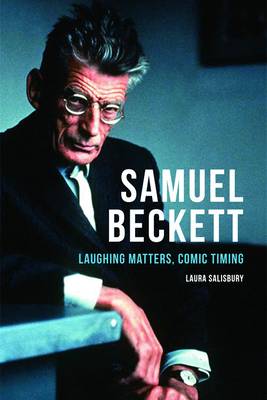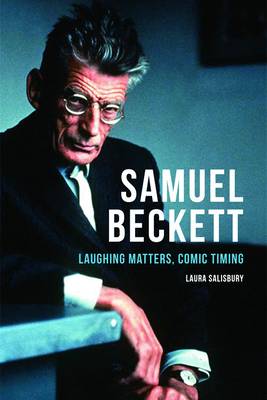
- Afhalen na 1 uur in een winkel met voorraad
- Gratis thuislevering in België vanaf € 30
- Ruim aanbod met 7 miljoen producten
- Afhalen na 1 uur in een winkel met voorraad
- Gratis thuislevering in België vanaf € 30
- Ruim aanbod met 7 miljoen producten
Zoeken
€ 148,45
+ 296 punten
Uitvoering
Omschrijving
Reads Beckett's comic timing as part of a post-war ethics of representationSamuel Beckett is a funny writer. He is also an author whose work is taken to respond ethically to the unspeakable seriousness of the post-Holocaust situation. How can these two statements sit together?Ranging widely over Beckett's fiction, drama, and critical writings, and including readings of Murphy, the Trilogy, Waiting for Godot, Endgame, the late prose, and the late plays, the book demonstrates that it is through Beckett's comic timing that we can understand the double gesture of his art: the ethical obligation to represent the world how it is while, at the same time, opening up a space for how it ought to be.Key Features: * Presents innovative readings of the comedy found in Beckett's fiction, drama and critical writings* Spans Beckett's entire oeuvre, using published and unpublished sources* Engages with recent and contemporary philosophical approaches to literature, including work by Derrida, Badiou, Levinas, and Adorno* Makes a unique contribution to theoretical work on comedy and laughter* Provides a rigorous introduction to the theoretical debates surrounding the relationship between modernist literature and a post-war ethics of representation
Specificaties
Betrokkenen
- Auteur(s):
- Uitgeverij:
Inhoud
- Aantal bladzijden:
- 272
- Taal:
- Engels
Eigenschappen
- Productcode (EAN):
- 9780748647484
- Verschijningsdatum:
- 3/04/2012
- Uitvoering:
- Hardcover
- Formaat:
- Ongenaaid / garenloos gebonden
- Afmetingen:
- 155 mm x 236 mm
- Gewicht:
- 566 g

Alleen bij Standaard Boekhandel
+ 296 punten op je klantenkaart van Standaard Boekhandel
Beoordelingen
We publiceren alleen reviews die voldoen aan de voorwaarden voor reviews. Bekijk onze voorwaarden voor reviews.











